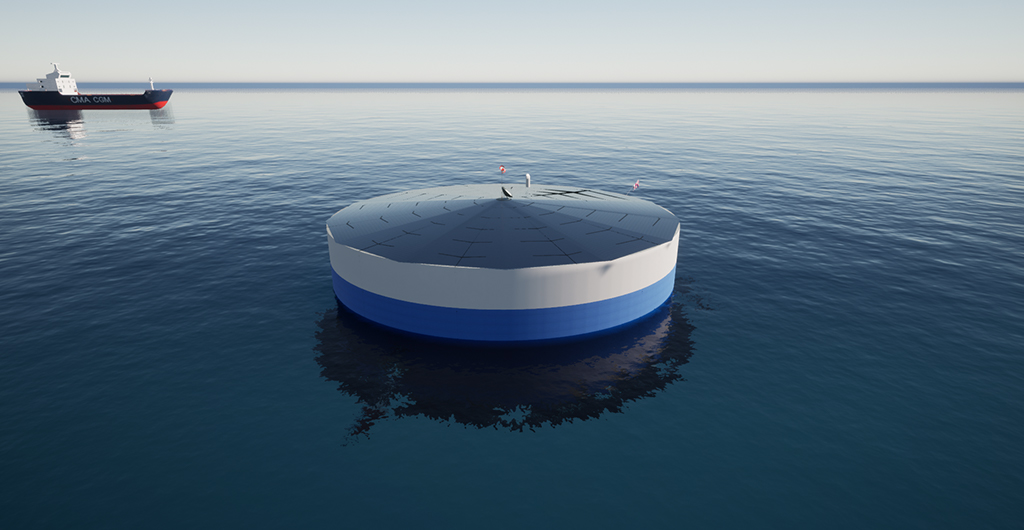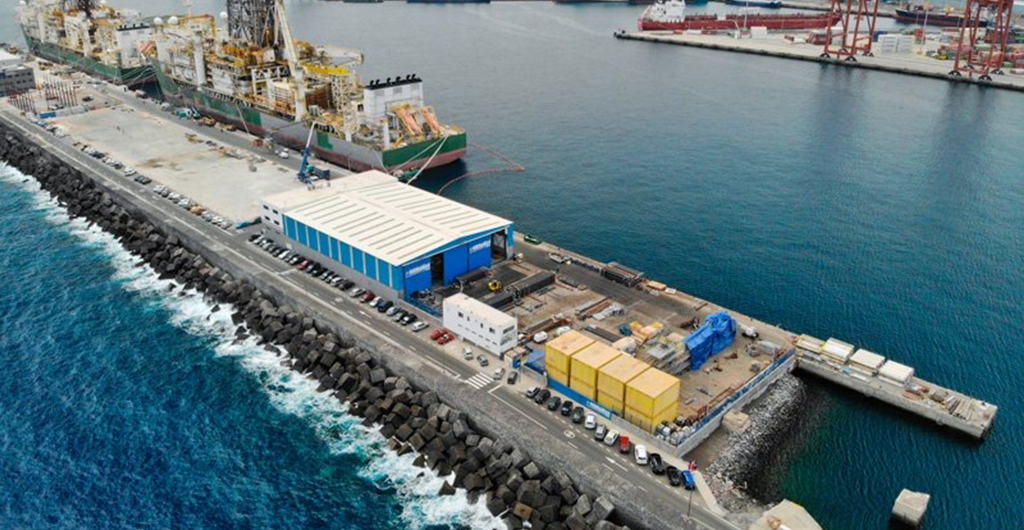Construction of OTEC storm-resistant structure begins in the Canary Islands
This March, fabrication begins with the innovative structure that will advance floating Ocean Thermal Energy Conversion (OTEC) technology in severe weather-prone regions. Developed under the EU-funded project PLOTEC, the scaled platform is expected to be installed in the upcoming months in a testing site in the Canary Islands, Spain. The structure consists of three main parts: a cylindric hull, a cold-water riser pipe and a gimbal connection point. AGRU is constructing the cold-water riser pipe in Austria. The cylindric hull, the largest element of the installation, is under construction at Hidramar Shipyard in Gran Canaria, with delivery scheduled for June.
Once the fabrication phase is concluded, the 1:5 prototype will be assembled and installed in the Oceanic Platform of the Canary Islands (PLOCAN), around three kilometres from the coast. During its lifetime, the platform will be subjected to the conditions of the Atlantic Ocean for about 12 months. Computer simulations and a scaled tank test in London last year have already affirmed the functionality of the envisioned OTEC structure. The project findings will contribute to marine engineering design, novel materials, and computational modelling, improving the accessibility of OTEC technology and the design and materials available to other offshore floating energy and navigational devices.
Connecting seven companies across Europe, the PLOTEC project aims to contribute to the renewable energy transition in Small Island Developing States (SIDS) vulnerable to severe weather conditions. Powered mainly by old diesel generators, these countries lack clean alternatives for electricity generation that are also adequate for their geographies. These conditions include intense hurricanes, typhoons, harsh storms and impacts from other climate occurrences such as El Niño.
Besides being designed and built with tropical storm survivability in mind, the full-scale structure is also configured to be disconnected in the case of extreme weather conditions and moved to a safe harbour until after the storm. It can be moved back as soon as the weather is good again and reconnected to start generating electricity straight away, as the surface seawater remains warm in the tropical area of the ocean no matter the climate conditions. “This prototype will provide us with the perfect opportunity to test our cylindrical hull and gimbal solutions in 20m equivalent waves and hone our offshore connection and disconnection procedure, allowing us to maximise asset lifetime and availability even in storm-prone regions”, highlights Sam Johnston, Lead Engineer at Global OTEC, one of the partners of the project.

PLOTEC partners
The consortium is composed of the following companies: Global OTEC (UK), Cleantech Engineering Limited (UK), WavEC Offshore Renewables (Portugal), The Oceanic Platform of the Canary Islands PLOCAN (Spain), Quality Culture (Italy), Agru Kunststofftechnik Gesellschaft m.b.H. (Austria) and University of Plymouth School of Engineering, Computing and Mathematics (UK).
About OTEC
OTEC is a renewable energy technology where surface warm seawater vaporises a working fluid, which drives a turbine to generate electricity. Cold deep water is used to condense the working fluid, and the cycle is then repeated. OTEC harnesses the power of the tropical ocean, the primary natural resource of islands, to provide a continuous, cost-effective supply of clean energy with significant environmental advantages over fossil fuels and nuclear power. Combining the developments of PLOTEC with OTEC power demonstration facilities worldwide, this ocean energy technology will become an even better fit for tropical islands, as other renewables have a more sensitive structure to severe weather or depend on sunny and windy days to generate electricity. As the surface seawater in the ocean’s tropical area remains warm throughout the year, OTEC can generate electricity 24/7. Adding to a storm-resistant structure, the technology becomes the potential permanent solution to power outages in tropical islands.



